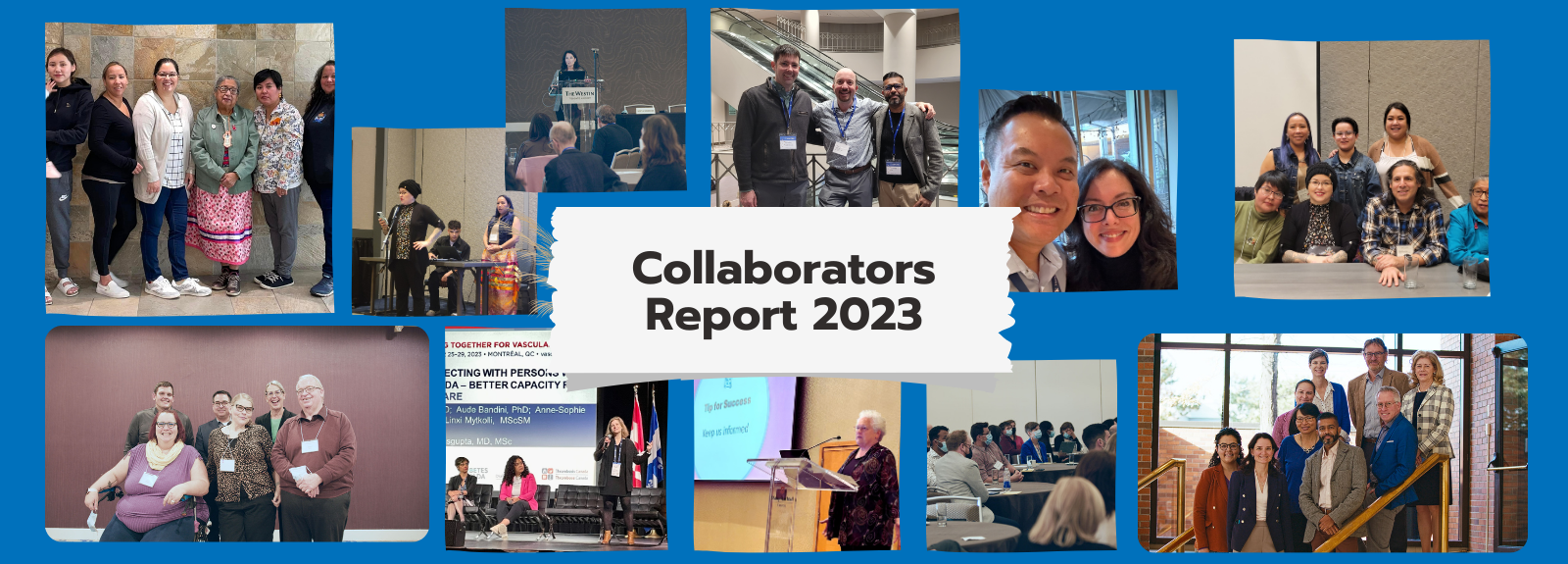


Diabetes Action Canada 2023 Collaborators Report
Collaborators Report 2023
Looking back on 2023, our Diabetes Action Canada Network has much to be proud of!
We successfully launched many projects and programs. We grew the number of Patient Partners and researchers in our Network, and we worked with community partners, government, and others to bring the findings of our research teams to people living with diabetes.
Below, you’ll find an overview of some areas of our work in the previous year that we’re particularly excited to share. We hope you’ll see the many ways that people with lived experience of diabetes have become essential parts of the research process.
It’s exciting to look back on what we achieved, but even better to know we’ve laid the groundwork for an impact-driven 2024.

Tracy McQuire

Gary F. Lewis

André Carpentier
Diabetes Action Canada in the Community
From presentations at national conferences to one-on-one meetings with key collaborators, in 2023 the DAC team was in community with people living with diabetes and our research teams. Being present in spaces were people with diabetes, healthcare providers and researchers are is essential to building successful programs to support the needs of those we serve.

Vascular 2023
Vascular 2023 brought together healthcare providers, researchers and Patient Partners from the diabetes and heart health communities for several days of education, information-sharing and networking.
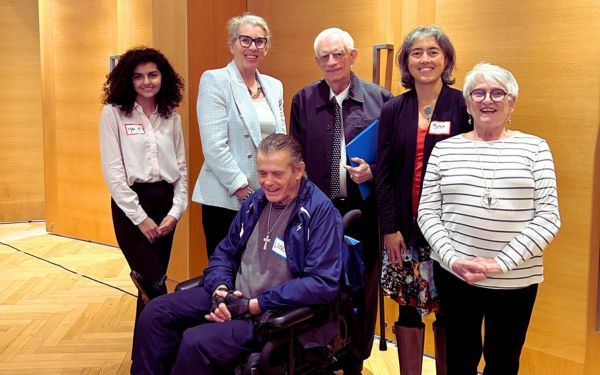
Workshops
In October our Knowledge Mobilization team partnered with the McMaster Collaborative for Health and Aging to present a workshop for those wishing to use patient-oriented research in their work with older adults.

Presentations
Our DAC Patient Partners, staff and researchers presented at dozens of conferences, meetings, online events, training sessions and other public-facing events. Sharing the power of patient-oriented research is essential.
Diabetes Action Canada by the Numbers
Since we launched in 2016, we have continued to grow our Network. The figure above highlights just a few of the significant ways we’ve supported patient-oriented research in diabetes.
In 2023, we continued this upward trajectory with a wealth of new achievements.
45
plain language publications
42
peer reviewed publications
$25M
in peer reviewed funding
47
letters of support with 22 projects funded
41 Focus Groups
23 Events
47 Grant Applications
Bringing Programs to People with Diabetes
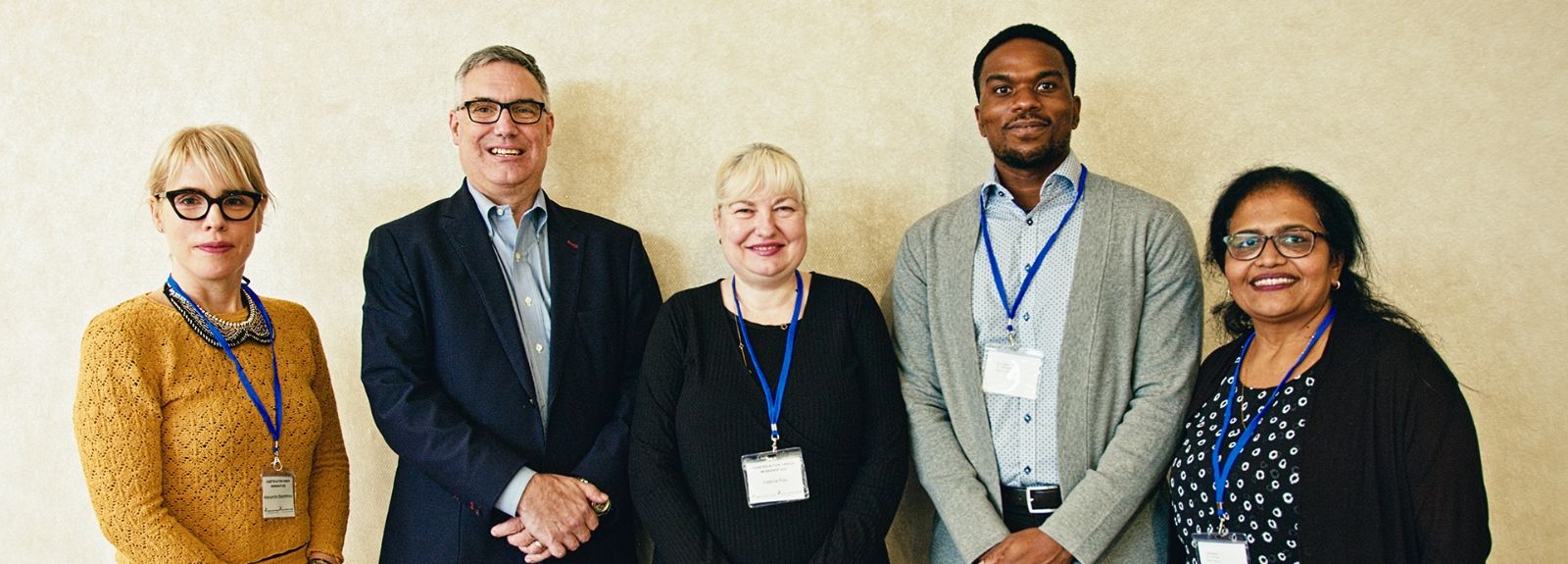
Diabetic Retinopathy Screening Program
Led by Dr. Valeria Rac, our Diabetic Retinopathy Screening program collaborated with the Alliance for Healthier Communities and ICES to design a study that used electronic medical records to identify people with diabetes who had not had an eye screening in the last 425 days. Those who were identified were contacted by Community Health Centres and offered free screening. This pilot project will allow Dr. Rac and her team to study the effectiveness of this program in removing barriers to screening. The program is currently being tested across Canada in British Columbia, Alberta, Ontario and Newfoundland.

Valeria Rac
Older Adults with Diabetes and Multiple Complications Program
Led by Dr. Rebecca Ganann from McMaster University, this program was developed with the input of patients, caregivers, primary and community care providers and researchers. It was delivered to older adults living with diabetes and other chronic health conditions over a period of six months by nurses, dietitians and community providers. Participants reported improved eating habits, enhanced physical function, improved knowledge in managing diabetes and other chronic conditions, and improved connection to community resources.

Rebecca Leigh Ganann
Improving Access to Footcare for People with Diabetes
Diabetic foot ulcers (DFUs) put a heavy financial strain on regional healthcare services. However, our research team has shown that there are ways to reduce costs while improving outcomes for patients. Led by Dr. Charles de Mestral from Unity Health in Toronto, this project has shown that using multidisciplinary teams and specialized care pathways for DFU patients can be effective. This evidence has helped us reach policymakers, as it is an opportunity to ensure better care, reduce the number of lower limb amputations, and decrease burden on the healthcare system.

Charles de Mestral
Supporting Improved Diabetes Care for Indigenous Communities
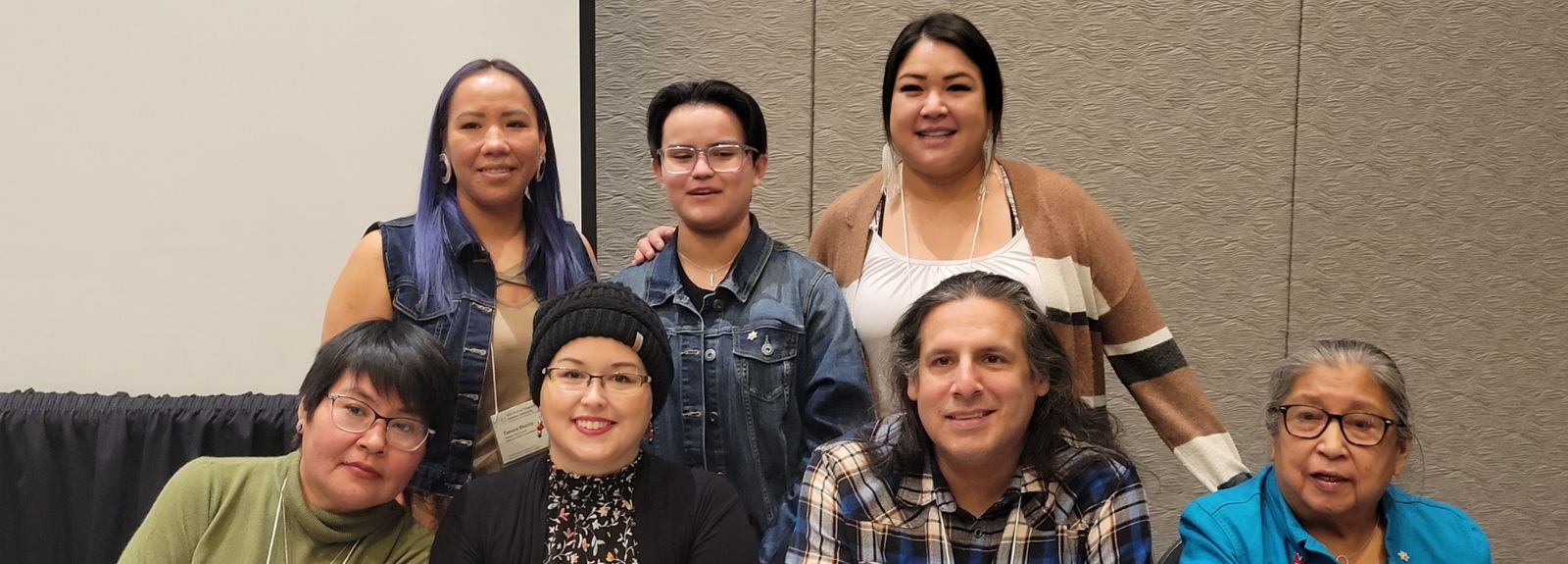
Our Indigenous Peoples’ Health Program is guided by our Indigenous Patient Circle and Indigenous community leaders, many of whom are from Manitoba. Currently, the Indigenous Patient Circle consists of 12 persons with lived experience from diverse nations including Anishinaabe, Haudenosaunee/ Kanien’keha:ka, Nēhiyawēwin (Cree), Innu, Inuit, Coast Salish, Métis and Anishininiimowin (Oji-Cree) nations.
This program addresses the Truth and Reconciliation Calls (TRC) to Action # 19, 22, 23 & 24 by defining indicators for T2D risk among Indigenous youth, promoting Indigenous healing practices through knowledge translation activities with Elders/Knowledge Keepers, increasing the number of Indigenous trainees working in the area of diabetes research and the number of settler clinicians and scientists trained in anti-racism.
Dr. Barry Lavallee, an expert in anti-racism training with the Diabetes Integration Project within the First Nation Health and Social Secretariat of Manitoba, developed an eight-week anti-racism training program for healthcare practitioners. Building on the anti-racist adult education used in the University of Manitoba First Nation Health longitudinal course for medical trainees, it was piloted and refined with Indigenous and non-Indigenous trainees within DAC. It directly addresses the TRC Call to Action #24 to “Provide cultural competency training for all healthcare professionals”.
Digital Health Solutions

The National Diabetes Repository (NDR) continues to offer researchers access to primary care data through a supported digital infrastructure with patient-led governance to address diabetes- specific questions with minimal barriers. This focus on data allows researchers to deeply understand how people with diabetes interact with the healthcare system, and the health issues they are experiencing. This lens allows us to hone in on research projects that address the areas where we can have greatest impact.
Learn more about two of our recent NDR-supported projects:
Knowledge Mobilization

Knowledge mobilization (KM) can be a complex academic science, but it’s impact on bringing the results of research studies into practical understanding and application is undeniable. To bridge that gap, DAC has developed a range of knowledge mobilization tools and webinars to simplify the complexities of KM science. In 2023, we also launched our Knowledge Mobilization Consultation Service to ensure our research teams were considering KM from the very start of the grant application process and beyond.
Sharing our Stories

Season three of the Actions on Diabetes Podcast included conversations with our researchers and patient partners about a variety of topics, including mental health supports for those with type 1 diabetes, improving access to diabetic retinopathy screening for new immigrants to Canada, health coaching in type 2 diabetes, and much more!

In 2023, we launched a wealth of webinar content, including Beyond Clinical Trials: How to Leverage Your Story in Diabetes Research and our Knowledge Mobilization Basics series. We also have a number of training, education and information videos available to all.
New Collaborations

In January, 2023 the Canadian Institutes for Health Research (CIHR) announced funding for the Accelerating Clinical Trials (ACT) Canada Consortium, which will improve Canada’s ability to conduct clinical trials for therapies that could have a positive impact on health outcomes for Canadians. ACT brings together hundreds of researchers over 28 networks, 11 clinical trial units, Patient Partners, members of the biotechnology industry, government, and other experts. Diabetes Action Canada will be involved through its participation in the Diabetes Clinical Trial Network, led by Dr. Hertzel Gerstein (Deputy Director of the Population Health Research Institute at McMaster University and Hamilton Health Sciences).
In 2023 Diabetes Action Canada became a member of the World Health Organization’s Global Diabetes Compact. The Compact, which has a vision of, “responding to the increasing burden of diabetes around the world,” was launched in 2021 to coincide with the 100th anniversary of the discovery of insulin. Comprised of members from diabetes organizations around the globe, Diabetes Action Canada looks forward to learning from other members and supporting the Compact’s goals of “ensuring that all people who are diagnosed with diabetes have access to equitable, comprehensive, affordable and quality treatment and care.”
Training the Next Generation
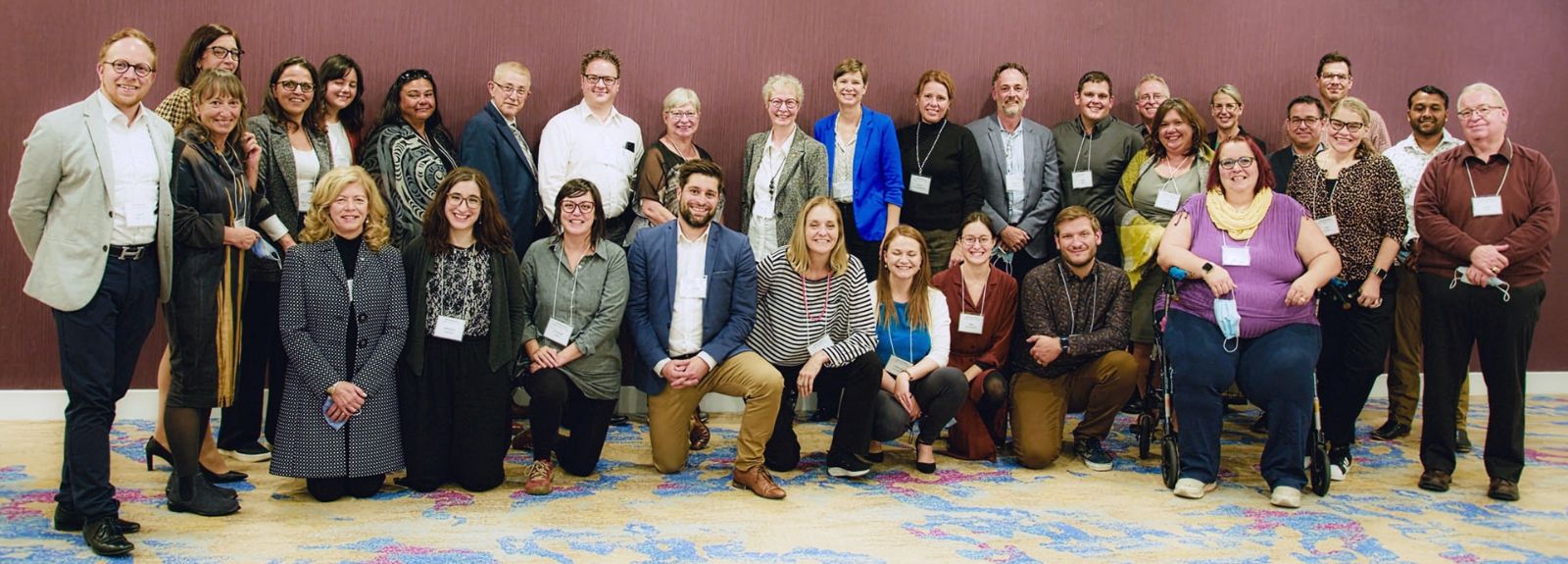
In collaboration with the New Brunswick Health Research Foundation, DAC established a highly successful Patient-Oriented Research Training and Mentoring program, and provided the leadership, patient partnership and framework for Maximize your Research on Obesity and Diabetes (MyRoad). MyRoad is helping train the next generation of scientists to mobilize new and emerging evidence into practice and policy with a specific focus on patient partnership.
This year, we also concluded post-doctoral awards for two early career investigators.

Dr. Ghazal Fazli is now Assistant Professor at the University of Toronto Mississauga and leads Education and Training at the Novo Nordisk Network for Healthy Population

Dr. Virginie Blanchette, the first PhD-trained podiatrist in Quebec, is an active DAC co-investigator and Steering Council member.
DAC 2.0 Vision, Mission, and Goals
Who are we?
Our Mission
Our Vision
- Pan-Canadian research network bringing patients, caregivers, health care experts and researchers together to address diabetes health concerns through collaborative research.
- Our researcher efforts prioritize equity, diversity, and inclusion to enhance healthcare for all.
- Funded through the Strategy for Patient-Oriented Research (SPOR) Program at CIHR and other partners.
Guided by patient partners, Diabetes Action Canada strives to achieve equitable care and improved health outcomes for all persons affected by diabetes.
All persons with diabetes, in Canada experience, optimal health and wellness.
What we do
Plan, execute & evaluate
Advance
Innovate
Strengthen
Our Research

Promote optimal aging at home

Support innovative research in T1D

Prevent blindness

Prevent foot amputations

Foster resilience in diabetes

Leverage diabetes data for better health
Publications with Impact
In this fiscal year, our research teams had DAC-related publications in 42 academic journals. These publications highlight the impact of patient-oriented research to experts in the field and help to establish patient partners as respected members of a research team.
Highlights from 2023:
-
The Association of Homelessness With Rates of Diabetes Complications: A Population-Based Cohort Study Diabetes Care
-
Higher Neighborhood Drivability Is Associated With a Higher Diabetes Risk in Younger Adults: A Population-Based Cohort Study in Toronto Diabetes Care
-
Sex- and Age-Based Achievement of Type II Diabetes Clinical and Treatment Targets in Canadian Primary Care (2015-2020): A Multi-Provincial Serial Cross-Sectional Study CMAJ
-
Empagliflozin add-on therapy to closed-loop insulin delivery in type 1 diabetes: a 2 × 2 factorial randomized crossover trial Nature Medicine
-
Prevalence and predictors for being unscreened for diabetic retinopathy: a population-based study over a decade Canadian Journal of Ophthalmology
Find a selection of our publications of note in our Resources section.
Acknowledgements
Diabetes Action Canada gratefully acknowledges the following contributors. Your support and partnership has allowed us to bring together researchers, healthcare providers and patients from across the country with the goal of transforming health outcomes for people with diabetes.
Project & Institutional Partners

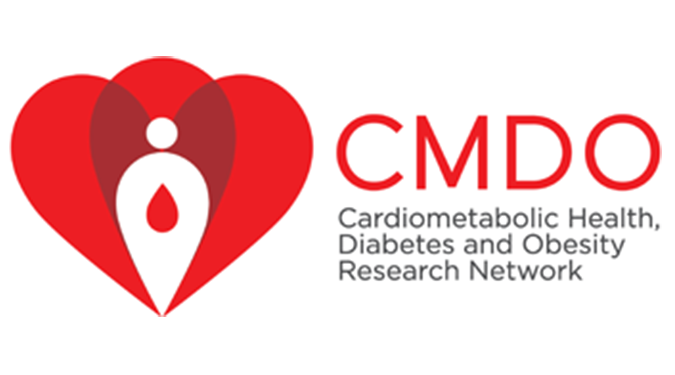


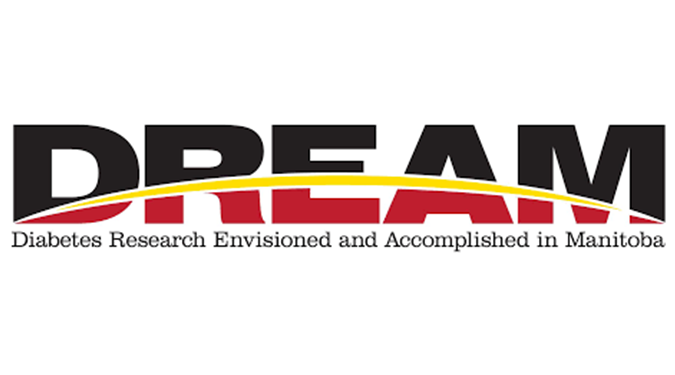
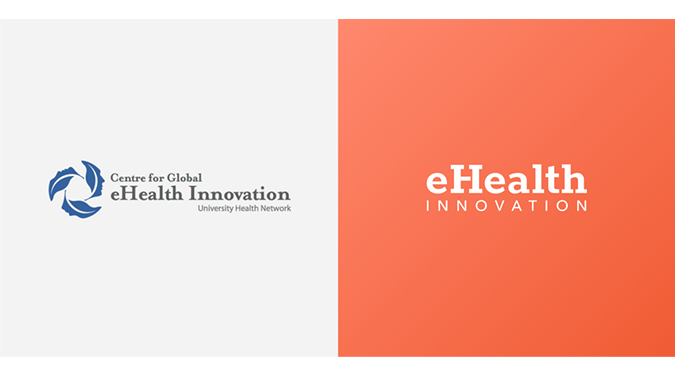
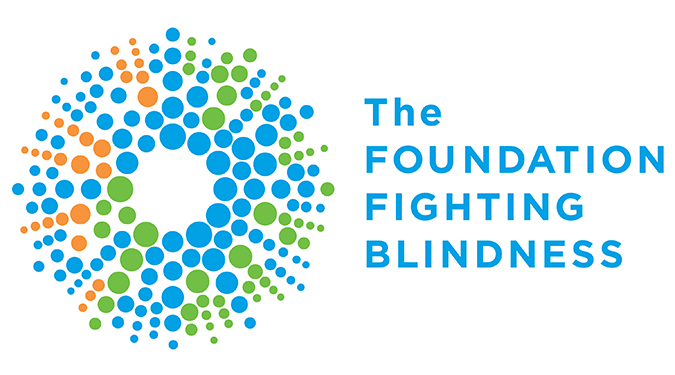

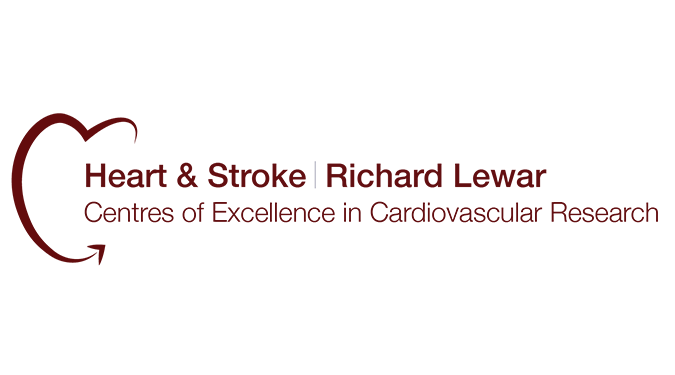
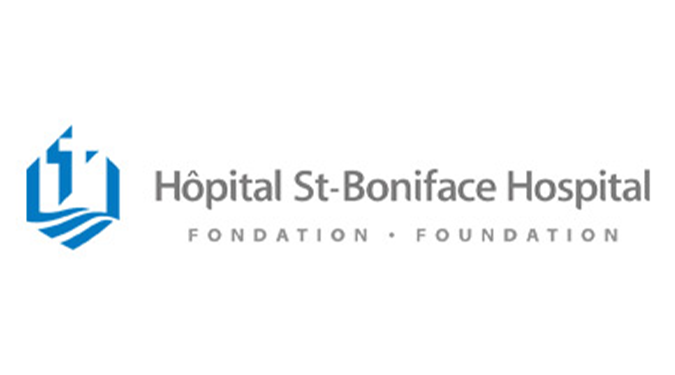


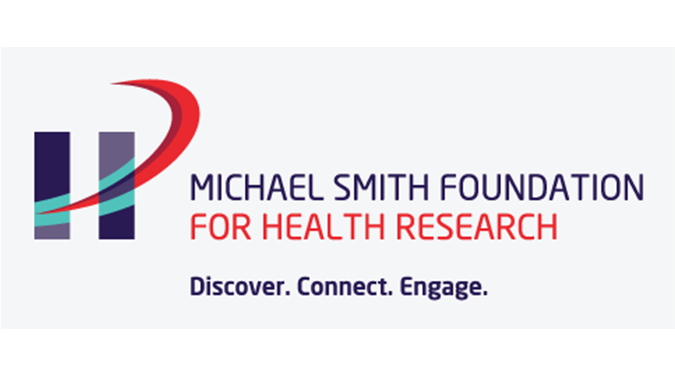
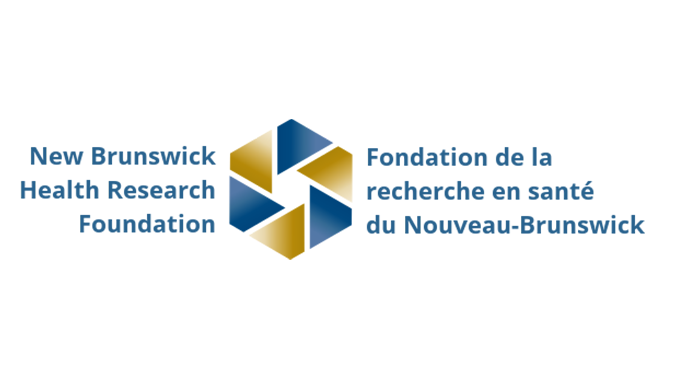
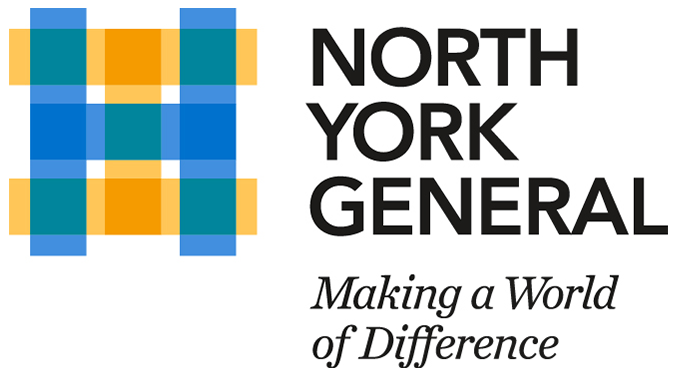
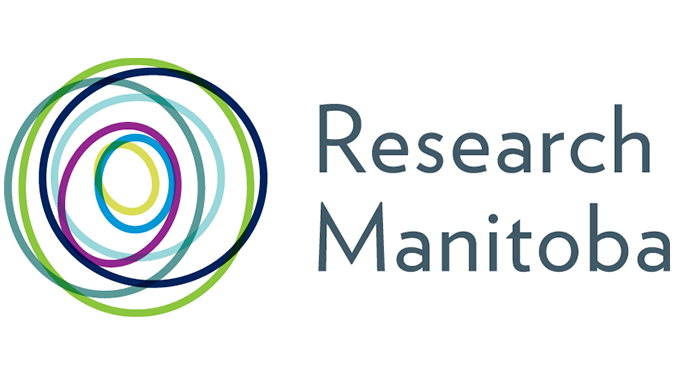

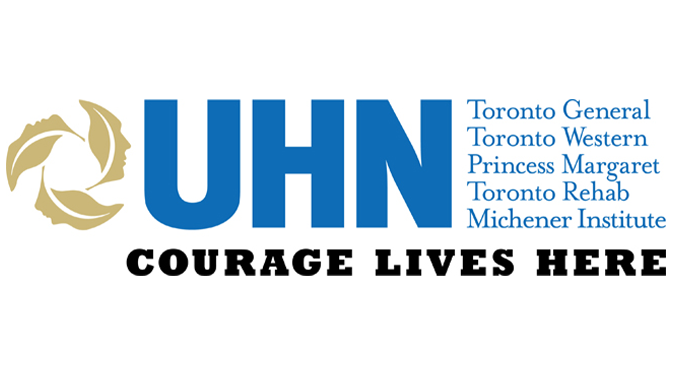

Patient Representative Strategic Partners
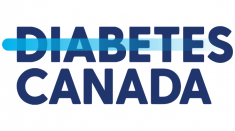
Foundational Partners

